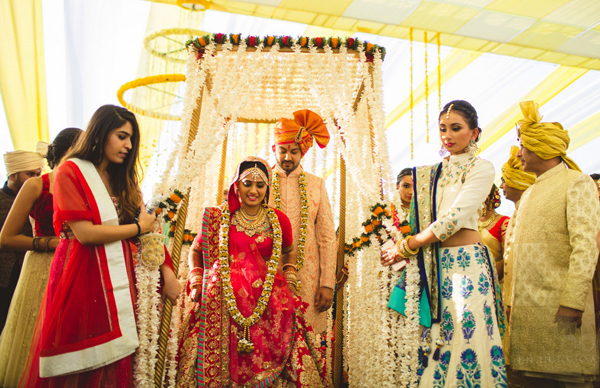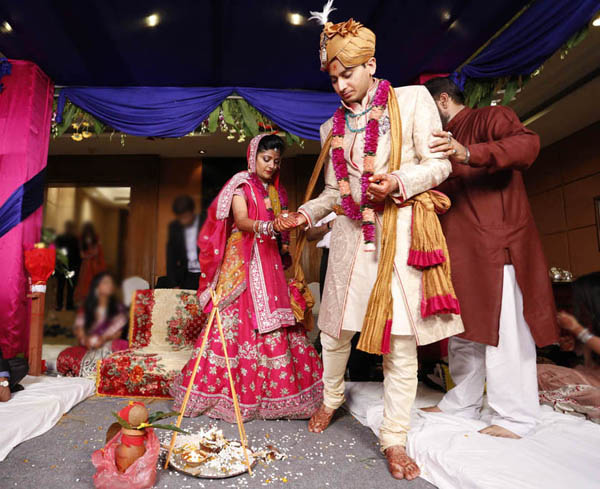The Baniya community is considered one of the most money minded people after Gujarati’s. These people don’t like spending money and relate everything with ROI of each rupee spent. Generally, we assume that they would practice the similar things in their marriage as well and would not spend much on marriage and marriage rituals. But, reality is far away from the truth. These people love to spend too much money on their Baniya wedding. In fact, Baniya marriage is generally conducted very lavishly and high on expenditure.
Generally, during baniya marriage week the rituals and celebrations last for whole week at both the families at Baniya bride & Groom family. The search of parent’s ends once they find a perfect match within their community. Once both the families accept this new relation, they make the formal declaration of this new relation and fix the dates for different ceremonies. Let’s take a look at Baniya marriage rituals and know them closely.
Fixing the marriage date: The wedding date of Baniya marriage is fixed by matching the astrological charts of Baniya girl & boy for marriage. They fixed a date, which is considered to astrologically auspicious, so that it will bring good fortune and happiness in their married life.
Ganpati puja: The wedding ceremonies start with Ganpati puja. It is also known as the first ceremony or beginning of marriage rituals. The puja is performed in both the families. The ceremony is popularly known as the mandav ceremony and is performed to seek the divine blessing of God Ganpati for successful completion of all wedding functions without any interruption and mishappening and seeking blessing for the new couple who are about to start a new life.
Visiting the porter: This ceremony is conducted by the ladies of both the houses, they take a procession, where they sing and dance their ways to a porter’s place. During the ritual they sprinkle water, sandalwood and flowers on the porter’s wheel. They purchased the pots from the porter and bring it to home to perform further rituals. These pots are then used for various purposes during the different wedding ceremonies.
Exchanging gifts for weddings: A day or two before the actual wedding day, the families of bride and groom exchange the gifts. The would-be couple is not allowed to participate in these rituals.
Mehendi ceremony: This ceremony is conducted in both families. The ladies of both the families smear mehendi on their hands. The bride and even the groom apply mehendi on their hands. The mehendi has its own significance in Indian wedding and bridal make-up and look is incomplete without mehendi ceremony.
Haldi ceremony: On the day of marriage this ceremony is performed. Firstly, there is another ceremony, which is known as thaapa and haldi ceremony at both homes. After this the next ceremony is Goddess Gauri puja, where the girl is treated as Goddess Gauri. She receives gifts and jewelry from maternal side.
Feet washing ceremony of groom: Once the groom entered the house of the bride on wedding day, her mother washes his feet with honey, curd, milk, ghee and sugar.
Actual wedding rituals: After feet washing ceremony, all other actual wedding day ceremonies take place. The bride and groom exchange the garlands. After that they proceed further for saat phera, but before that the bride’s father performs kanyadan ceremony, where all the responsibilities of the bride like happiness, financial, physical, and emotional and others given to the groom.
LoveVivah.com Baniya Matrimony site offers profiles of Baniya birdes & grooms for marriage. Select your life partner from Agarwal matrimonial profiles.


